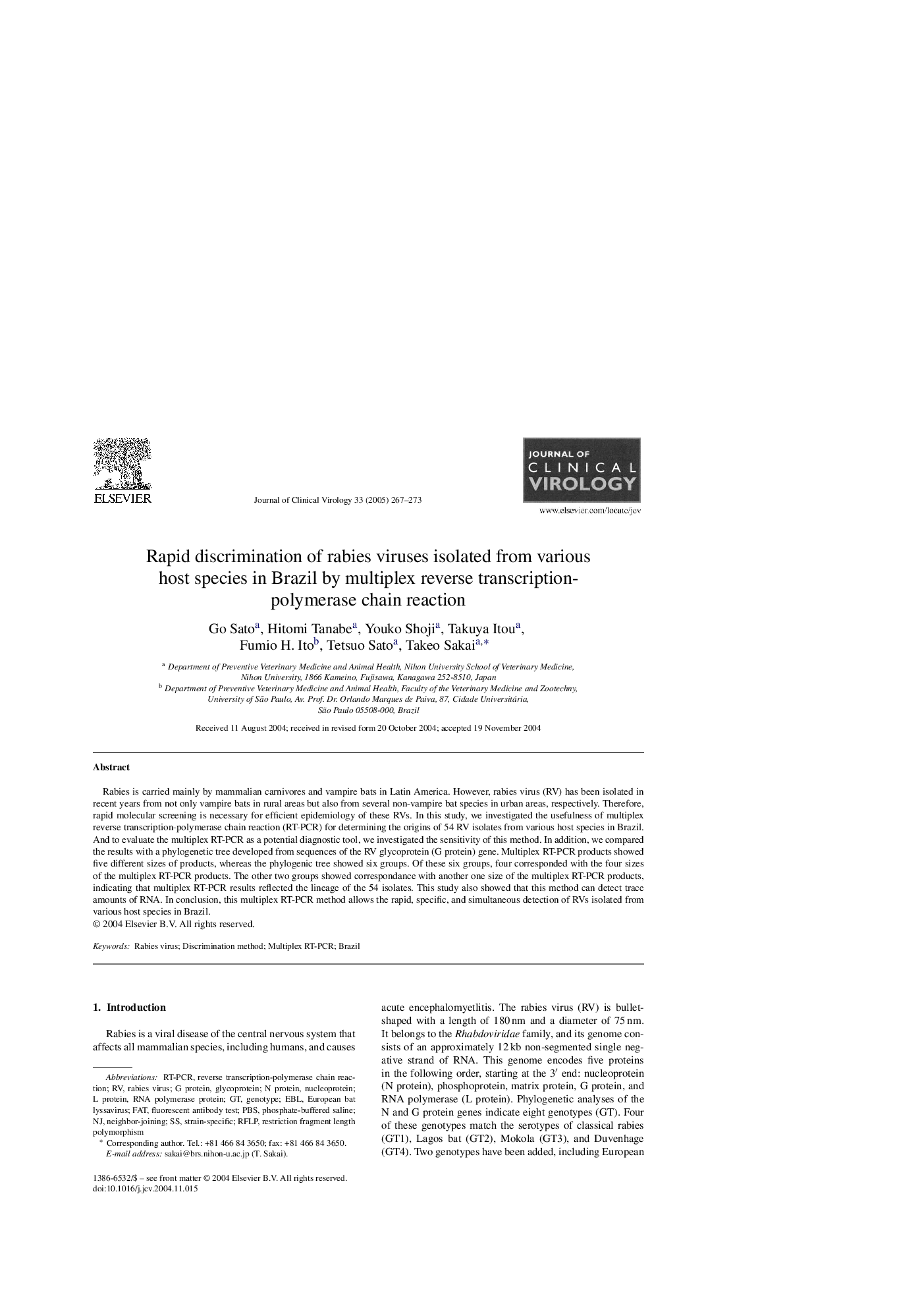| Article ID | Journal | Published Year | Pages | File Type |
|---|---|---|---|---|
| 9268736 | Journal of Clinical Virology | 2005 | 7 Pages |
Abstract
Rabies is carried mainly by mammalian carnivores and vampire bats in Latin America. However, rabies virus (RV) has been isolated in recent years from not only vampire bats in rural areas but also from several non-vampire bat species in urban areas, respectively. Therefore, rapid molecular screening is necessary for efficient epidemiology of these RVs. In this study, we investigated the usefulness of multiplex reverse transcription-polymerase chain reaction (RT-PCR) for determining the origins of 54 RV isolates from various host species in Brazil. And to evaluate the multiplex RT-PCR as a potential diagnostic tool, we investigated the sensitivity of this method. In addition, we compared the results with a phylogenetic tree developed from sequences of the RV glycoprotein (G protein) gene. Multiplex RT-PCR products showed five different sizes of products, whereas the phylogenic tree showed six groups. Of these six groups, four corresponded with the four sizes of the multiplex RT-PCR products. The other two groups showed correspondance with another one size of the multiplex RT-PCR products, indicating that multiplex RT-PCR results reflected the lineage of the 54 isolates. This study also showed that this method can detect trace amounts of RNA. In conclusion, this multiplex RT-PCR method allows the rapid, specific, and simultaneous detection of RVs isolated from various host species in Brazil.
Keywords
Related Topics
Life Sciences
Immunology and Microbiology
Applied Microbiology and Biotechnology
Authors
Go Sato, Hitomi Tanabe, Youko Shoji, Takuya Itou, Fumio H. Ito, Tetsuo Sato, Takeo Sakai,
